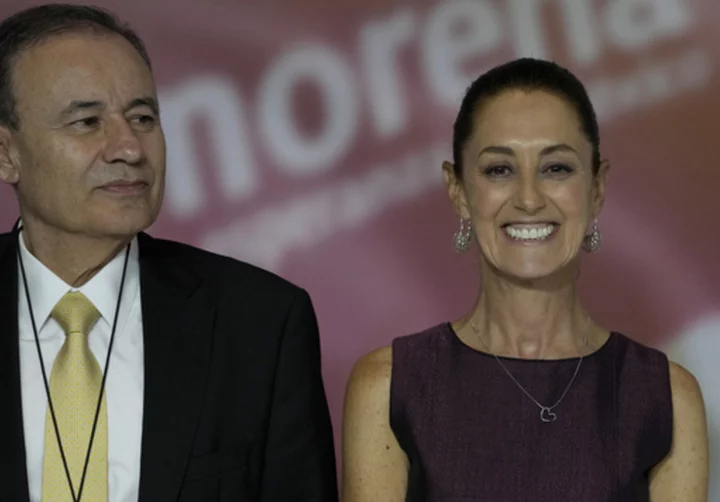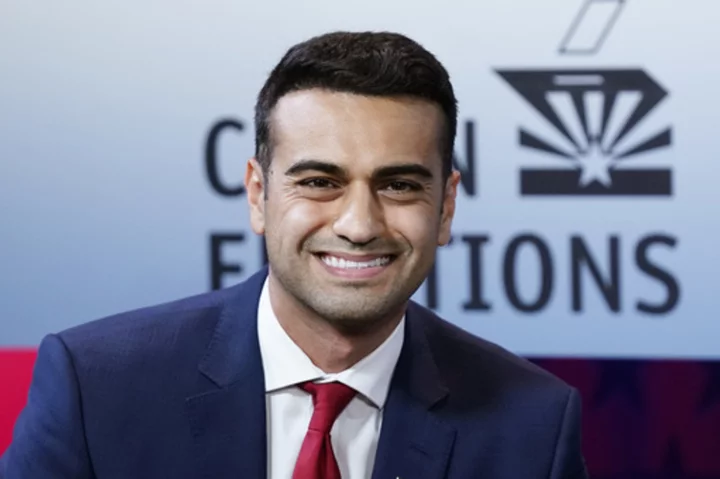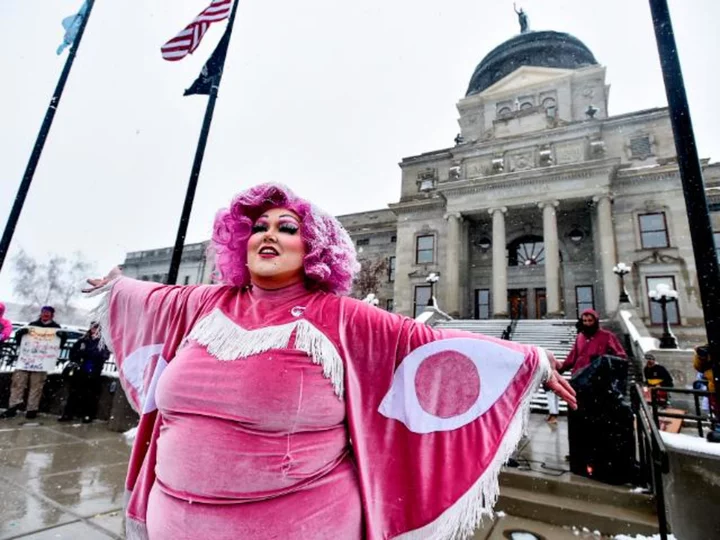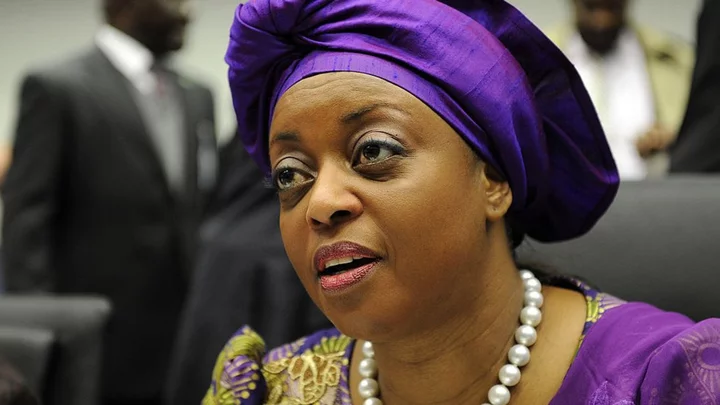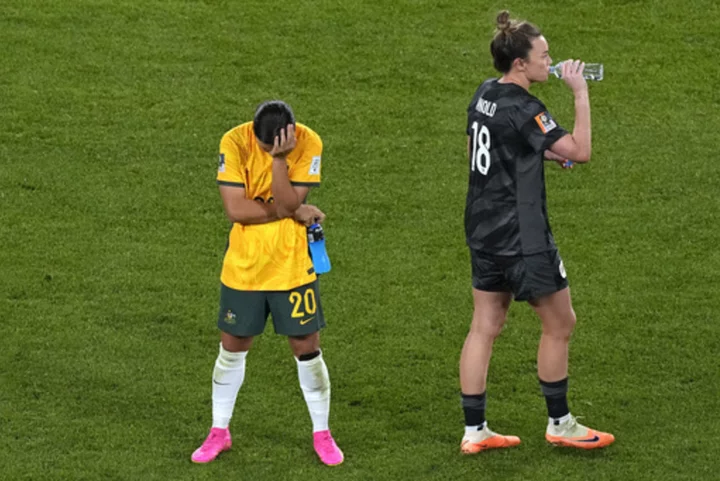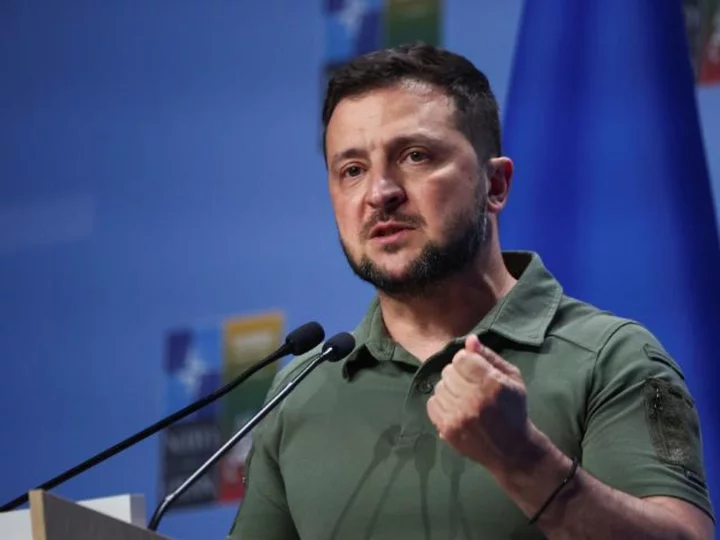MEXICO CITY (AP) — With the selection of former Mexico City Mayor Claudia Sheinbaum as the candidate of the country’s ruling party in next June’s election, Mexico will for the first time have time two women from its main political movements competing for the presidency.
Sheinbaum, as well as the opposition candidate Xóchitl Gálvez, have insisted that Mexico is ready to be led by a woman, but it will not be an easy path.
On Wednesday night, President Andrés Manuel López Obrador’s Morena party announced that Sheinbaum had defeated five internal party rivals – all men. López Obrador has put women in important positions in his Cabinet and been a mentor for Sheinbaum, even while being accused at times of male chauvinism.
Mexico still has famously intense “machismo” or male chauvinism, expressed in its most extreme form in a high rate of femicides, but also daily in hundreds of more subtle ways.
Mexico has a strong “macho vote,” said Gloria Alcocer Olmos, director of the electoral magazine “Voice and Vote,” adding that it is not exclusive to male voters.
Alcocer Olmos noted that in June’s gubernatorial election in the state of Mexico – the country’s most populous jurisdiction – the race was between two female candidates “and turnout was the lowest in history.” The same thing occurred in the state election in Aguascalientes in 2021, she said.
“What does that tell us?” she asked. “That the people are voting for women? The reality is that no, and the saddest thing is that women themselves are not voting for women.”
Such low turnout in the June 2 presidential election is less likely because so much is at stake, Alcocer Olmos said. There is also the possibility that the Citizen Movement party, which controls Nuevo Leon and Jalisco – two of the most economically important states – could nominate a male candidate who would attract that macho vote, she said.
Another question mark is what former Foreign Affairs Secretary Marcelo Ebrard will do. As Sheinbaum’s closest rival in Morena he did not accept the results of the internal party selection process, claiming there were irregularities.
Morena controls 22 of Mexico’s 32 states and López Obrador remains highly popular, giving Sheinbaum a strong advantage. But Gálvez emerged from virtual obscurity, helped largely by daily public criticism from López Obrador, to become the consensus candidate of the largely directionless opposition.
Aurora Pedroche, a Morena activist who supports Sheinbaum, suggested another problem should one of the female candidates win the presidency. Given the greatly increased power and responsibility that López Obrador has given the military during his administration “how are they going to accept a woman as commander in chief?”
“That scares me,” Pedroche said.
While Mexican women have advanced to positions of political power in public life – in part because of required representation quotas for public office -- women suffer from high levels of gender violence. Femicides – cases of women killed because of their gender – have been a persistent problem for decades.
Sheinbaum represents continuation of López Obrador’s social agenda, but without his charisma to take on an opponent in Gálvez who has an ease of connecting with people that is more reminiscent of the outgoing president.
The independent Gálvez is representing the Broad Front for Mexico, a coalition of the conservative National Action Party, the small progressive Democratic Revolution Party, and the old-guard Institutional Revolutionary Party, or PRI, that held Mexico’s presidency without interruption between 1929 and 2000.
Gálvez caucuses with the National Action Party in the Senate but is not a member.
Strategist Antonio Sola, who worked on the 2006 campaign of former President Felipe Calderón and later with one of the parties that helped López Obrador win, thinks Gálvez’s outsider image could help her.
With much of the world experiencing the end of a political era dominated by traditional candidates, the emerging figures are those who are “kicking the system,” he said.

